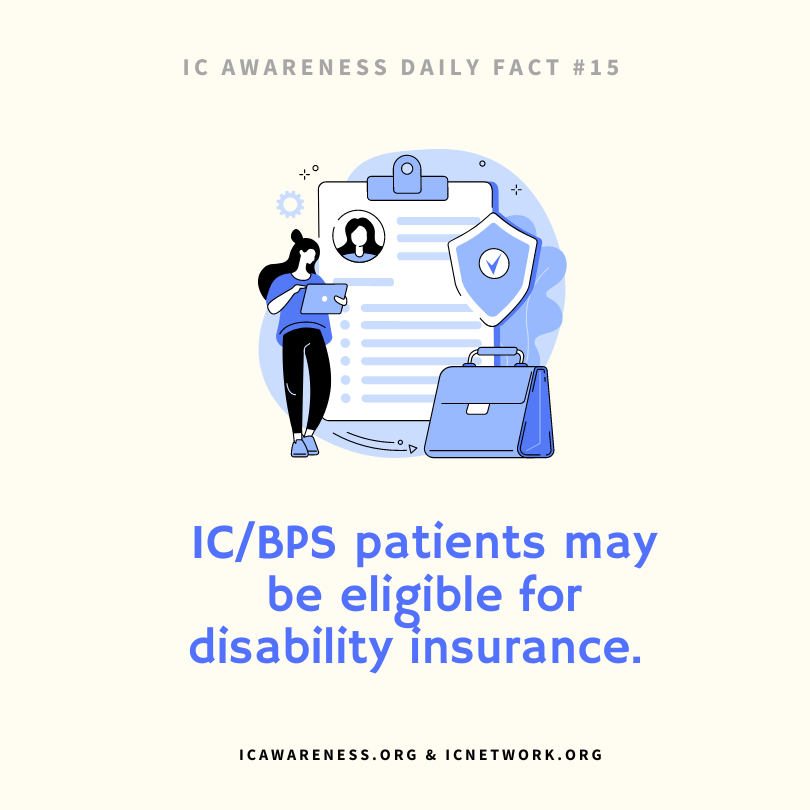 Patients with more severe IC who are unable to work may apply for disability benefits. In the USA, there are four different types of disability insurance.
Patients with more severe IC who are unable to work may apply for disability benefits. In the USA, there are four different types of disability insurance.
Private Disability Insurance
Private Disability Insurance is usually obtained through your employer if they offer disability benefits. In general, private disability insurance kicks in one you meet the criteria for SSA disability (see below). If you are currently working, check your personnel policies and/or any related materials to see if your employer offers disability insurance.
State Disability Insurance (SDI)
State Disability Insurance (SDI) is offered by several US states for residents. SDI is usually a transitional rather than long term disability program, the goal of which is to assist you in returning to work (i.e. after an accident or pregnancy) or to provide benefits during the often lengthy SSA application period. To research whether your state offers disability benefits, check your phone book under State Government Listings and/or contact your local State Representative’s Office.
Social Security Disability Insurance (SSDI)
SSDI is a federally funded program offered by theSocial Security Administration (SSA). Your eligibility for SSDI (and Medicare) depends entirely on your work record and whether you meet SSA’s reported income guidelines. Roughly speaking, you must have worked five of the past ten years. The amount of money you receive under SSDI depends on how much money you paid into the Social Security system.
Supplemental Security Income
Supplemental Security Income (SSI) is a needs based federal program available to individuals with very limited income and few, if any, resources. There are no financial income or resource limitations for SSDI. It is also run by the Social Security Administration.
Patient Tip – One key element of any disability application is evidence or proof of your symptoms. A voiding diary is an excellent piece of evidence to give to your doctor to include in your medical records AND to submit with your claims. Voiding diaries help document your urinary frequency, urgency and pain level.
Patient Tip – Appeal! Appeal! Appeal! While Social Security Disability is notorious for denials at the application stage for ALL disabilities, patients can (and should) appeal their decisions and often win benefits.
Additional Resources:
ICN Disability Resource Center – offers SSA Application Process Tips, An Appeal Success Story, How to Find an Attorney, link to the SSA Ruling on IC/BPS.
Past Images:

